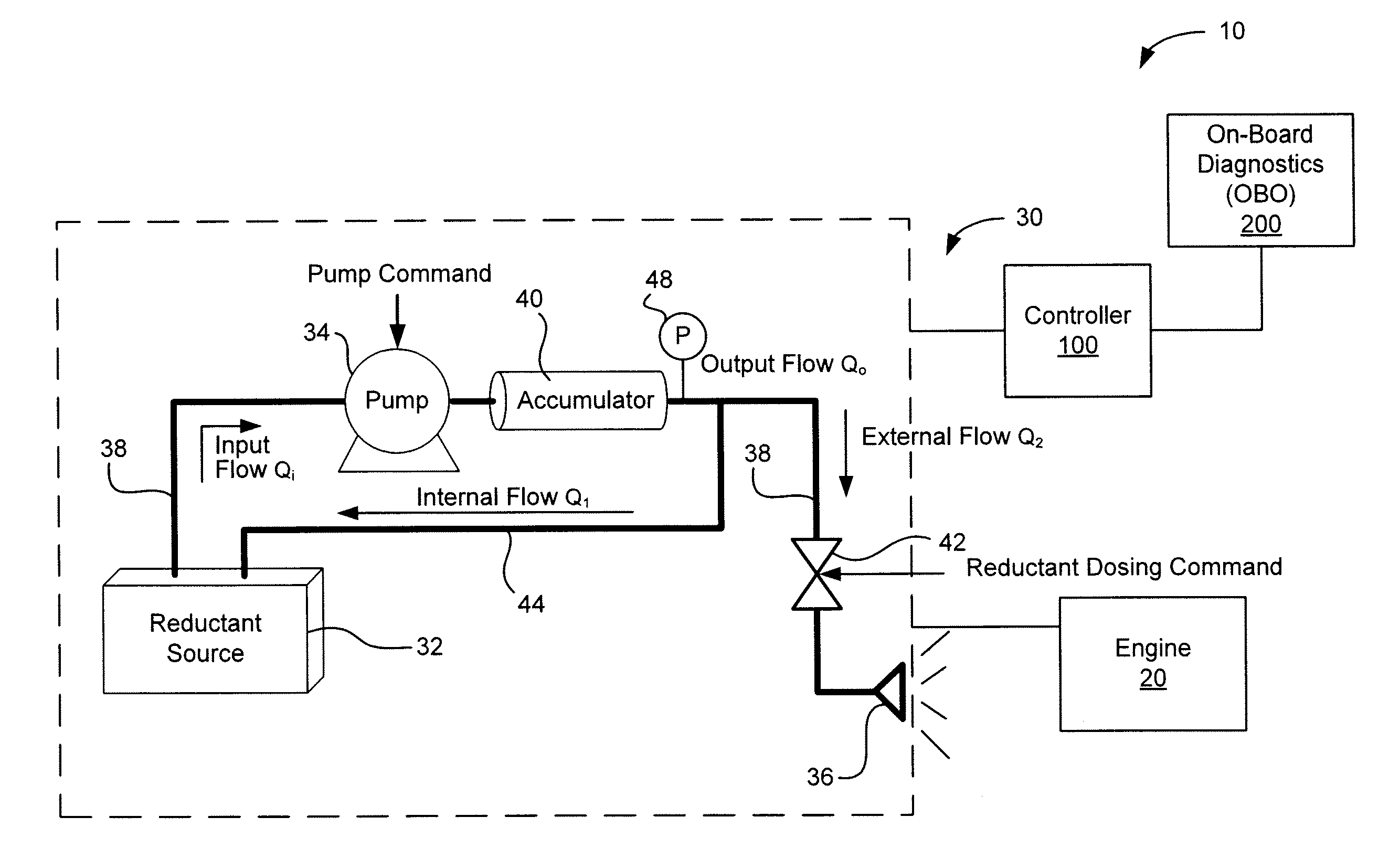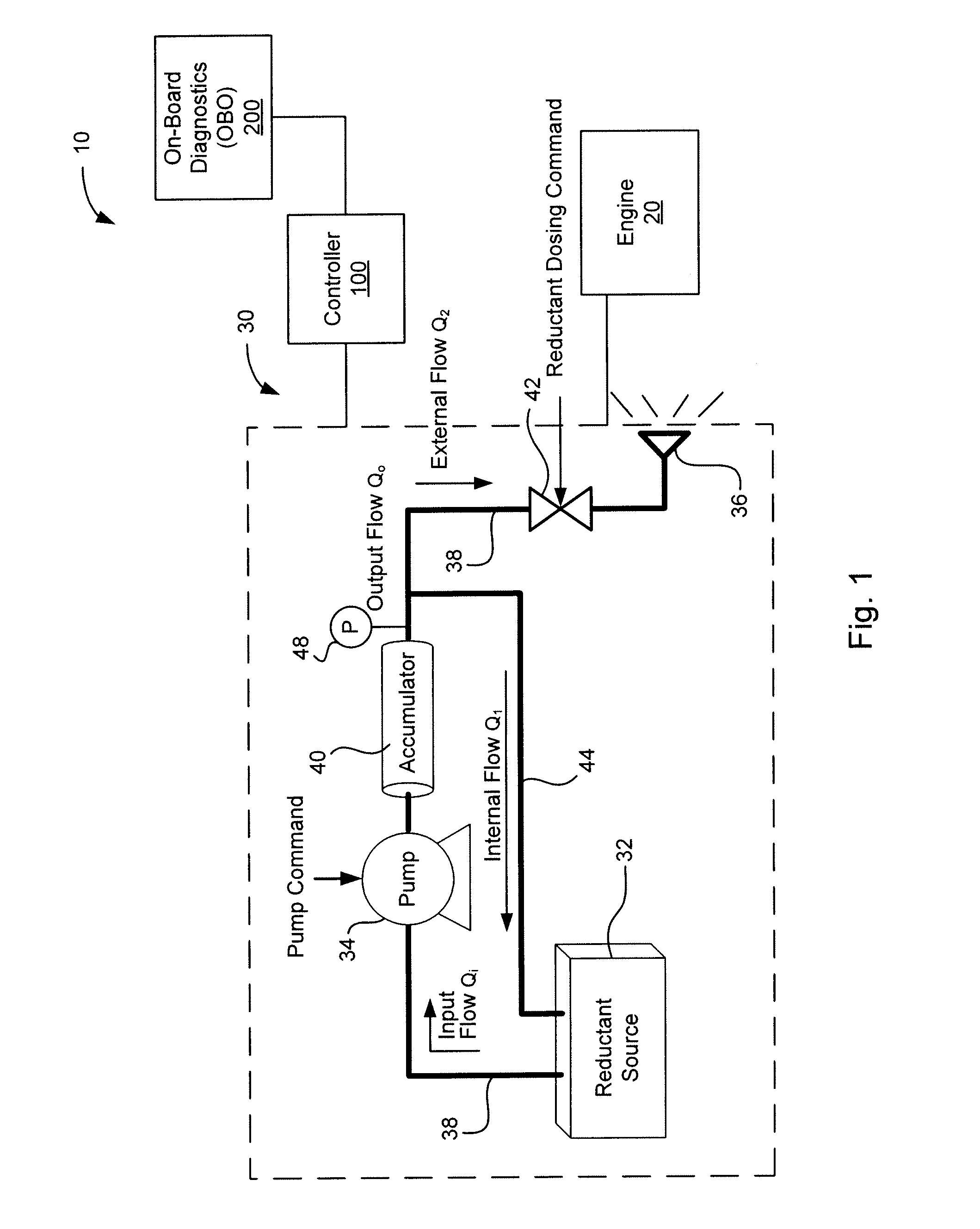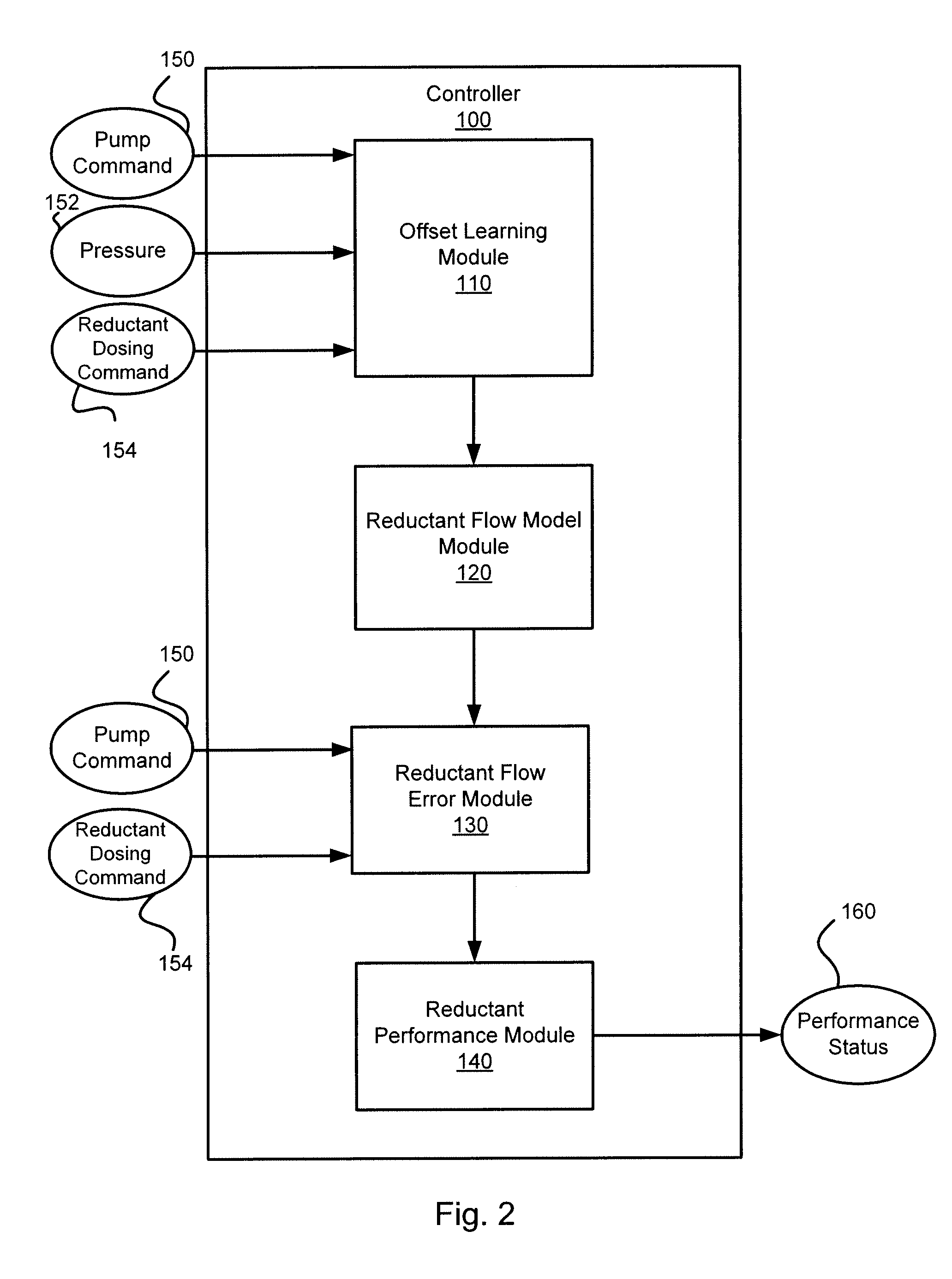Apparatus, method, and system for diagnosing reductant delivery performance
a reductant and apparatus technology, applied in the field of apparatus, method and system for diagnosing the delivery performance of reductants, can solve the problems of reduced reductant flow rate, and inability to convert enough no/sub>x/sub> in the scr system, etc., to achieve the effect of reducing the reductant flow rate and reducing the flow ra
- Summary
- Abstract
- Description
- Claims
- Application Information
AI Technical Summary
Benefits of technology
Problems solved by technology
Method used
Image
Examples
Embodiment Construction
[0016]Reference throughout this specification to features, advantages, or similar language does not imply that all of the features and advantages that may be realized with the subject matter of the present disclosure should be or are in any single implementation. Rather, language referring to the features and advantages is understood to mean that a specific feature, advantage, or characteristic described in connection with an implementation is included in at least one implementation of the present disclosure. Thus, discussion of the features and advantages, and similar language, throughout this specification may, but do not necessarily, refer to the same implementation.
[0017]The described features, structures, advantages, and / or characteristics of the subject matter of the present disclosure may be combined in any suitable manner in one or more implementations. In the following description, numerous specific details are provided to impart a thorough understanding of implementations ...
PUM
 Login to View More
Login to View More Abstract
Description
Claims
Application Information
 Login to View More
Login to View More - R&D
- Intellectual Property
- Life Sciences
- Materials
- Tech Scout
- Unparalleled Data Quality
- Higher Quality Content
- 60% Fewer Hallucinations
Browse by: Latest US Patents, China's latest patents, Technical Efficacy Thesaurus, Application Domain, Technology Topic, Popular Technical Reports.
© 2025 PatSnap. All rights reserved.Legal|Privacy policy|Modern Slavery Act Transparency Statement|Sitemap|About US| Contact US: help@patsnap.com



